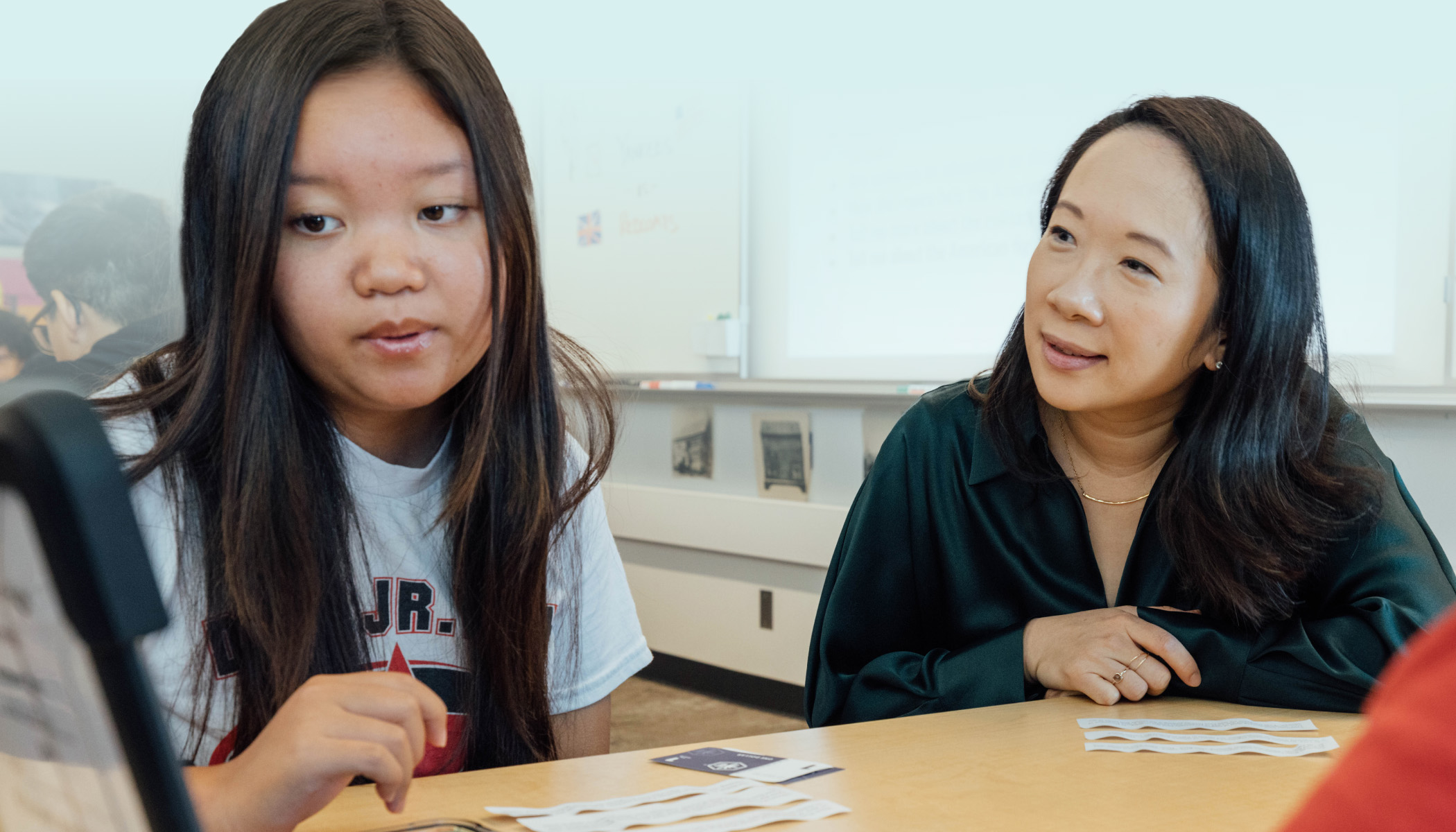Oct 11, 2024 · 4 min read
Chan Zuckerberg Initiative Commits Funding To Help Educators Shape How AI Will Be Used in Classrooms
Head of Education, Sandra Liu Huang, announces three new grants focused on increasing collaboration between teachers and edtech developers.

ANAHEIM, Calif., — The Chan Zuckerberg Initiative (CZI) today announced three grants supporting artificial intelligence (AI) education initiatives to empower educators as co-creators of future technologies. The announcement came during a visit to Dale Junior High School in the Anaheim Union High School District (AUHSD), where CZI Head of Education and VP of Product, Sandra Liu Huang spent the day learning about the impact of educator-informed artificial intelligence tools in the classroom.
“Educator input is crucial for ensuring AI tools in education are contextually relevant, accurate, and aligned with learning,” says Huang. “By integrating educators’ expertise, we can design AI systems that enhance student outcomes and support tailored learning experiences.”
A prime case study for the impact of building with educators
AUHSD has developed, trained teachers on, and implemented new technologies that leverage artificial intelligence. These AI tools, co-created with the nonprofit eKadence Learning Foundation, help teachers efficiently develop projects aligned with the district’s priorities for teaching and learning. As a result, students receive timely support on their projects, and school leaders have access to real-time data on the progress students and teachers are making.
Huang visited Dale Junior High School to observe how AI tools are helping teachers develop personalized, asset-based learning experiences tailored to each student. AI is also providing students targeted feedback to help them stay on track with projects that demonstrate their learning. During the visit, Sandra learned more about the development of these tools – including how previous CZI support to University of California, Irvine funded the development of a dashboard that helps educators understand students’ progress in life skills such as critical thinking, collaboration and communication, while also fostering youth voice and technical skills. Anaheim teachers also shared ways they’re helping co-build additional features that respond to challenges in the classroom.
Co-creating future technologies
CZI’s in-person learning is just one of several ways that the organization is seeking educator input on new AI products and resources that can help unlock student potential. Their work in artificial intelligence includes co-building AI tech tools with educators to address everyday classroom and school challenges. The grants announced by Huang during her visit seek to help build the education field’s infrastructure and capacity to support teachers and education leaders in being able to play an active role in the development of AI products and resources, ensuring they can influence the tools designed to help them.
The grants will support:
- Education First — to deeply engage with school district teams, helping build their capacity to make decisions around AI adoption. They will also publish resources and findings that address district readiness and priorities, helping the broader education field implement AI tools effectively.
- International Society for Technology in Education (ISTE) — in piloting a national research and development infrastructure initiative that will enable their 90,000 educator members to co-design edtech. This work aims to ensure alignment with district administrators, ultimately fostering a sustainable model that reduces barriers to integrating practitioner insights into the edtech R&D process, while also elevating educators’ awareness and interest in engaging in edtech R&D.
- Leanlab Education — to expand its educator and district co-design infrastructure that brings together K-12 educators and edtech developers. Through a deep partnership with more than 400 educators in 20 districts, they will refine processes for ongoing feedback, working to enable the creation of educational tools that are both pedagogically sound and tailored to classroom needs.
CZI is working to build education tools that integrate high-quality research, practices, and content to help address chronic educator challenges and unlock the full potential of every student, no matter who they are or where they live. For more information about how CZI and our grant partners are supporting student and teacher well-being, visit chanzuckerberg.com/education/.
###
About the Chan Zuckerberg Initiative
The Chan Zuckerberg Initiative was founded in 2015 to help solve some of society’s toughest challenges — from eradicating disease and improving education, to addressing the needs of our communities. Through collaboration, providing resources and building technology, our mission is to help build a more inclusive, just and healthy future for everyone. For more information, please visit chanzuckerberg.com.





